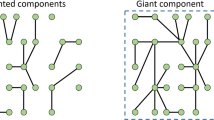Abstract
A new paradigm is needed for industrial civilization, because neither the traditional theory of exponential industrial growth nor the more recent steady-state hypothesis can satisfactorily explain historical data. As a basis for the paradigm, the long sweep of human history is divided into three phases: (1)pre-industrial, (2)industrial, and (3)de-industrial. This essay focuses on the second, or industrial, phase. The paradigm is embodied in four theories. The first theory states that industrial civilization can be graphed over time by energy-use per person in the shape of asingle pulse waveform. The second theory is derived from a well-established principle of human ecology. It defines a set ofnecessary conditions for the advance, stagnation and decline of industrial civilization in terms of world total energy-use and world total population. Next, the subject ofgoverning is analyzed in terms of ten requirements for system control. The third theory is derived from this analysis. It relates thesize, orcomplexity, of a society over time to the average energy-use per person in that society. Historical population and energy-use data and other considerations are used as the basis for the fourth theory. This, a predictive theory, states that thelife-expectancy of industrial civilization is less than 100 years.
Similar content being viewed by others
References
Asimov, I. & White, F. (1991).The march of the millennia: A key look at history. New York: Walker.
Ausubel, J.H. Frosch, R.A., & Herman, R. (1989). Technology and environment: An overview. In J.H. Ausubel, & H.E. Sladovich, (Eds.).Technology and Environment. Washington, DC: National Academy of Engineering Press.
British Petroleum (1991, June). Primary energy consumption.BP Statistical Review of World Energy. London.
Crick F. (1981).Life itself: Its origin and nature. New York: Simon and Schuster.
Dawkins, R. (1982).The extended phenotype. Oxford: Oxford University Press.
Duncan, R.C. (1991, August). The life-expectancy of industrial civilization.Proceedings of the 1991 International System Dynamics Conference (pp. 173–181). Bangkok.
Duncan, R.C. (1991, June). The evolution of social control: Is a world society governable?Preparing for a Sustainable Society Conference Proceedings (pp. 249–256). Toronto.
Duncan, R.C. (1989). Evolution, technology, and the natural environment.Proceedings of the American Society of Engineering Educators Conference (Sec. 14B1: pp. 11–20). Binghamton, New York.
Dyson, F. (1988).Infinite in all directions. New York: Harper & Row.
Forrester, J.W. (1971).World dynamics. Cambridge, USA: Wright-Allen.
Gibbons, J.H., Blair, P.D., & Gwin, H.L. (1989, September). Strategies for energy use.Scientific American (Middle East edition). pp. 86–93.
Haldane, J.B.S. (1927).On being the right size and other essays. (J.M. Smith, Ed. 1985). Oxford: Oxford University Press.
Hardin, G. (1985).Filters against folly. New York: Penguin.
Harris, M. (1977).Cannibals and kings: The origins of culture. New York: Vintage.
Holdren, J.P. (1991). Population and the energy problem.Population and Environment, 12(3), 231–255.
Hoyle, F. (1964).Of men and galaxies. Seattle: University of Washington Press.
Johanson, D. & Shreeve, J. (1989).Lucy's child: The discovery of a human ancestor. New York: Avon.
Koenig, H.E., Edens, T.C., & Cooper, W.E. (1975). Ecology, engineering, and economics.Proceedings of the IEEE, 63(3), 501–511.
Laszlo, E. (1987).Evolution: The grand synthesis. Boston: New Science.
Leakey, R.E., & Lewin, R. (1977).Origins: The emergence and evolution of our species and its possible future. New York: Dutton.
Lorenz, K. (1983).The waning of humaneness. London: Unwin Hyman.
Maloney, C. (1988).Behavior and poverty in Bangladesh. Dhaka: the University Press.
Malthus, T.R. (1798).An essay on the principle of population. (A. Flew, Ed., 1970). New York: Pelican.
Meadows, D.H., Meadows, D.L., Randers, J., & Behrens, W.W. III. (1972).The limits to growth: A report to the Club of Rome's project on the predicament of mankind. New York: Universe.
Mesarovic, M., & Pestel, E. (1974).Mankind at the turning point: The second report to the Club of Rome. New York: Dutton.
Naill, R.F. (1992). A system dynamics model for national policy planning.System Dynamics Review, 8(1), 1–19.
O'Neill, G.K. (1976).The high frontier. New York: William Morrow.
Pestel, E. (1989).Beyond the limits to growth: A report to the Club of Rome. New York: Universe.
Russell, B. (1949).Authority and the individual. London: Unwin Hyman.
Smith, A. (1776).The wealth of nations. (A. Skinner, Ed., 1970). London: Penguin.
Tainter, J.A. (1988).The collapse of complex societies. Cambridge: Cambridge University Press.
Tyler, C. (1992). Baby power.Geographical Magazine, LXIV(1), 16–20.
Watson, R.A., & Watson, P.J. (1969).Man and nature: An anthropological essay in human ecology. New York: Harcourt, Brace & World.
White, L.A. (1959).The evolution of culture: The development of civilization to the fall of Rome. New York: McGraw Hill.
Wilson, E.O. (1978).On human nature. New York: Bantam.
Yourcenar, M. (1951).Memoirs of Hadrian. (1986 ed.). Middlesex, UK: Penguin.
Author information
Authors and Affiliations
Rights and permissions
About this article
Cite this article
Duncan, R.C. The life-expectancy of industrial civilization: The decline to global equilibrium. Popul Environ 14, 325–357 (1993). https://doi.org/10.1007/BF01270915
Issue Date:
DOI: https://doi.org/10.1007/BF01270915




